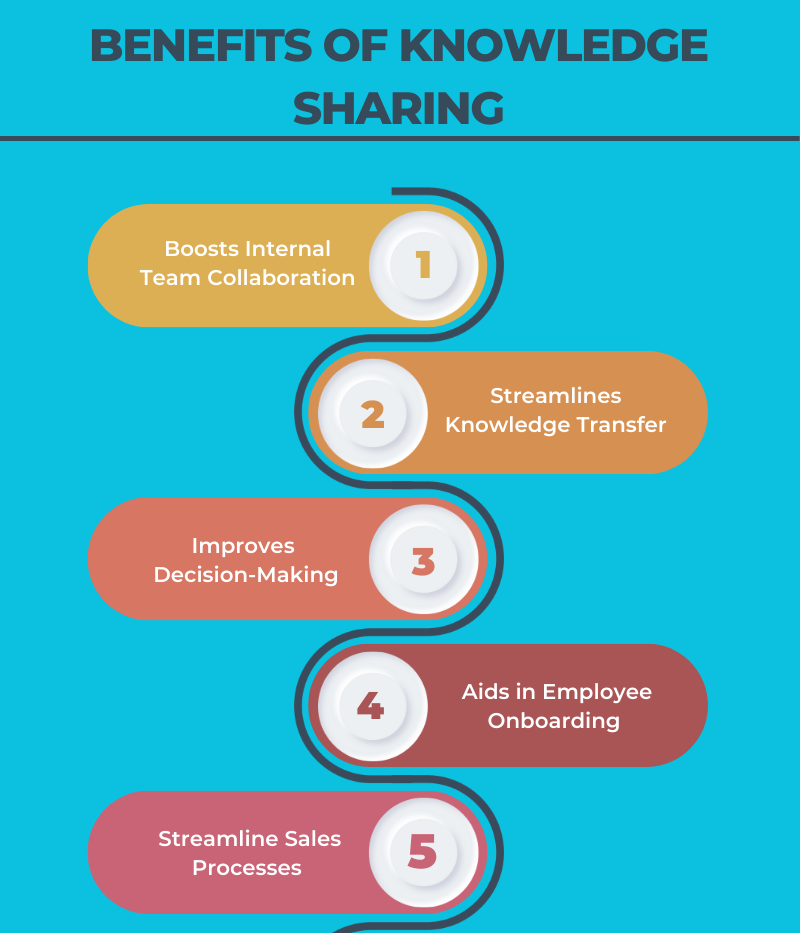Knowledge Sharing Platforms
Knowledge sharing platforms are digital tools and platforms that facilitate the exchange, collection and dissemination of knowledge and information within an organisation. They provide a centralised and accessible space where employees can share their knowledge, insights and best practices, fostering a culture of collaboration, learning and innovation. Here are some key aspects of knowledge sharing platforms:

Source: own elaboration
One common type of knowledge sharing platform is an internal wiki. These collaborative platforms allow employees to create, edit, and share knowledge articles and documents. The articles can cover a wide range of topics, including processes, procedures, project learnings, troubleshooting guides, and more. Wikis are typically organized in a hierarchical structure or through categories and tags, making it easy to search and navigate through the knowledge base.
Discussion forums are another important component of knowledge sharing platforms. They provide a space for employees to engage in conversations, ask questions, seek advice, and share insights. These forums can be organized around specific topics, projects, or departments, encouraging collaboration and cross-functional knowledge sharing. Employees can post their queries or challenges, and others can provide solutions, suggestions, or relevant resources.
Social collaboration tools incorporate social networking features into knowledge sharing platforms. They allow employees to connect, follow each other, and share updates, articles, and resources. These tools mimic popular social media platforms, providing a familiar and intuitive interface for employees to interact, share ideas, and discover relevant content.
Some knowledge sharing platforms include features that enable employees to showcase their expertise, skills, and interests. This allows others within the organization to identify subject matter experts and reach out to them for guidance or collaboration. Expertise mapping can also support talent management initiatives, as it helps identify internal resources for specific projects or assignments.
Personalization is an important aspect of knowledge sharing platforms. They can employ algorithms and AI technologies to curate and recommend relevant content to employees based on their interests, preferences, and past engagement. This personalized content delivery system ensures that employees receive timely and valuable information, helping them stay updated on relevant topics and trends.
Analytics and reporting features are often included in knowledge sharing platforms. They provide insights into usage patterns, popular content, and engagement levels. This data helps administrators and knowledge managers understand the effectiveness of the platform, identify gaps in knowledge, and make informed decisions to improve content quality and user experience.
Some of the best knowledge-sharing platforms on the market include: ProProfs Knowledge Base, Nuclino, Google Workspace, Bloomfire, Confluence. Each of these platforms offers unique features and tools to help teams create, organise and share information, as well as improve collaborative processes.